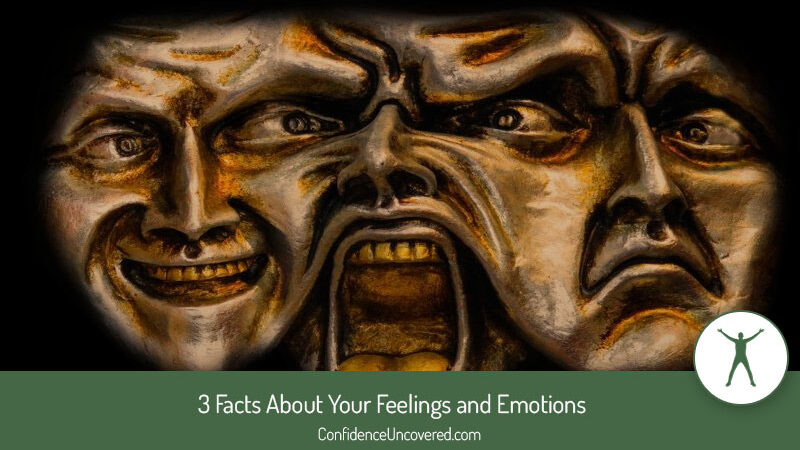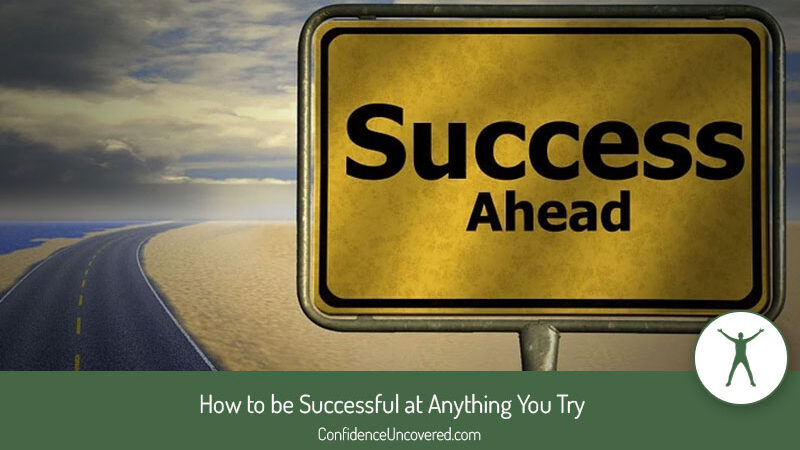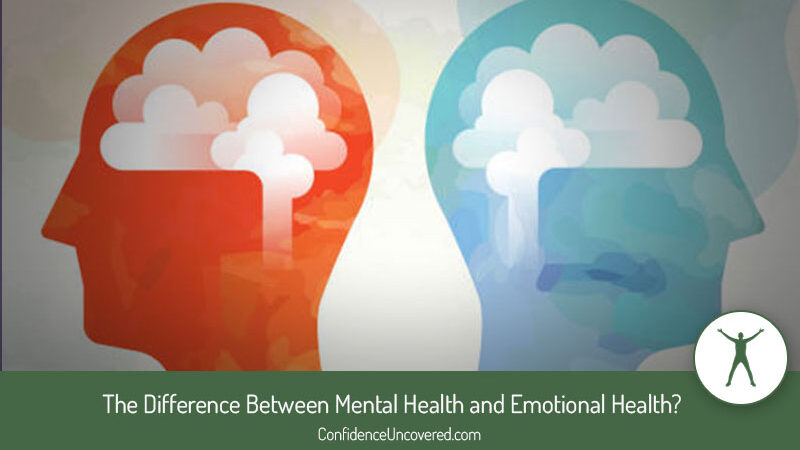How Your Values Affect Your Decisions
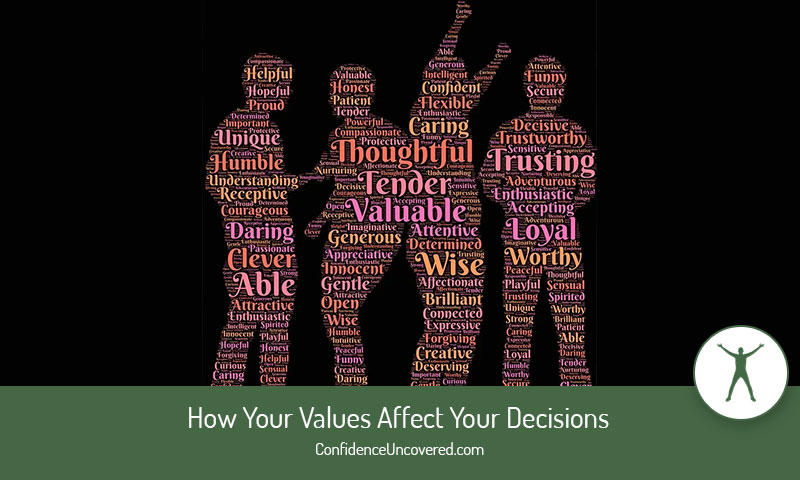
Do you find it difficult to make decisions?
Would it surprise you to learn that in 2007, Researchers at Cornell University (Wansink and Sobal), estimated that on average, an adult makes about 35,000 remotely conscious decisions every day. Over 220 of those decisions, are just about food!
Some of those decisions will also affect your confidence.
Luckily, about 95% of those decisions, you don’t even realize you’re making. Those decisions, are decided by your Values. So, your Values are important.
Let’s delve a little deeper into how your values affect your decisions and how those decisions, can affect your confidence .
What are your Values?
Your core values, essentially define who you are as a person. They’re your highest priorities when making decisions about everything you do.
Some of the more common values are things like… Honesty, Creativity, Compassion, Respect, loyalty, etc. but everyone’s values will be different.
And it’s no good trying to learn new behaviors that’ll change your current situation, if you don’t truly know what your current situation is.
So, today you’ll learn a little bit about how your values affect your decisions. This, by the way also includes the decisions you made to destroy your self-confidence.
 Your entire existence revolves around making decisions. And not just a few decisions either. We all know about the common ones such as “what shall I wear today?”, or “what should I make for Breakfast?”, etc.
Your entire existence revolves around making decisions. And not just a few decisions either. We all know about the common ones such as “what shall I wear today?”, or “what should I make for Breakfast?”, etc.
Every day, you make thousands of different decisions, sometimes many per minute. But generally, they’re taken care of by your unconscious and it’s unlikely that you even notice.
Those decisions are taken in a fraction of a second, and are sometimes thought of as ‘second nature’. So automatic that you don’t even register that it happened.
It doesn’t matter how many decisions you make in a day, they all follow the same pattern. Every decision you make is really a determination of whether the thing you’re are about to do, satisfies one, or more of your Values.
How your values affect your decisions
It doesn’t matter whether that decision is about what you should cook for dinner today, whether you should look up from your studies to catch a glimpse of what’s playing on the TV, or whether you should apply the brakes on your car before you hit the truck that’s pulled out of the turning, right in front of you!
In that example, when the car enters your lane you ask yourself a question… “Will continuing on at my current pace take me closer to, or further away from, my values?”
If one of your values is SECURITY, you’ll hit the brakes immediately.
But, if your top value is EXCITEMENT, or UNCERTAINTY, you’ll probably try some other, more exciting way of avoiding the collision.
And this same process happens even in the ‘studying’ example, above.
If one of your values is certainty, or success, you’re unlikely to waste valuable time on the TV. But, if your top value is enjoyment, or relaxation, you might find that a ‘quick glance’ lasts 30 mins 😢.
And this process also happens with, for example, decisions you make about;
- whether you’ll try a new experience.
- what your thoughts were, about different experiences and situations in the past,
- whether you should ask your boss for a raise,
- whether you should go to bed early because of work in the morning, or stay up to watch another show on Netflix, etc.
Those same values determine how you’re going to deal with any kind of situation.
Here’s a quick example for you…
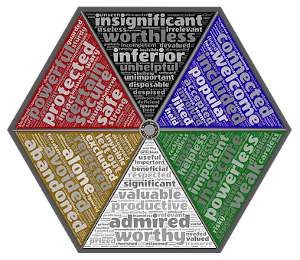 Let’s say, one of your top values is security.
Let’s say, one of your top values is security.
If you lack self-confidence, you probably put most of your energy at work, into making sure you don’t mess up. This is so you don’t put your security at risk.
Also, you probably never apply for promotions and never ask for a raise, just in case this puts your job at risk later on.
You most likely convince yourself that your just happy doing what you’re doing. There’s no need to make un-necessary waves. That’s your ‘security‘ value making the decision for you.
Later on, I’m going to ask you to do an exercise. It will help you discover what your Values are, to help you to produce a success plan for your future.
Are Values the same for everyone?
The simple answer is, sometimes, but not always. Let me explain…
By-the-way, there’s a ‘Values’ worksheet you can download on the community download page, which lists dozens of values, to give you some ideas to start with.
Anyway… moving on, Values are abstract in nature and are emotional states. Like I mentioned before, things like, Security, Power, Happiness, Love, Freedom, or Respect, etc. Because these values are abstract, my idea of what each one means, is probably different to what that same value means to you.
For example, I believe that respect, means that the people I meet with, should be courteous and polite. After all, manners cost nothing. We should expect nothing less from a civilized society.
To someone else, it may be that if a person was to walk by them without showing them some form of acknowledgement, that person would be disrespectful. Neither of these opinions are wrong, they’re just different.
Different people react differently, according to their values. So, someone else’s reaction to the same situation, may be very different.
And remember that your Value is the ’emotional state’ that a certain thing gives you, not the thing itself.
For example, you might say that the thing you value most in your life is having an abundance of money. And your lack of confidence is causing procrastination, so you’ll never have a lot of money.
 That being the case, let’s say I transferred $1,000,000 into your personal bank account. You would have an abundance of money; the one thing you valued more than anything else.
That being the case, let’s say I transferred $1,000,000 into your personal bank account. You would have an abundance of money; the one thing you valued more than anything else.
But, then I tell you that you can keep that money. It’s yours forever. But, you can’t spend it, or any of the interest you gain from it. Suddenly having an abundance of money isn’t as fulfilling anymore, is it?
What you really want, what you truly value, is the things that money can give you. It may be security, or adventure, or fun, etc.
Everyone is different, but we all have a hierarchy of values that we try to live by. A set of life targets that our unconscious mind is constantly trying to achieve for us.
Another way we try to meet our values, is by building a belief system. But, I’ll go into that in another post.
Next steps
For now, get clear on what you’re values are. Knowing what you value most, will help you plan the best things to do in the future.
 And yes, your values can change over time. It’s completely natural to change, or update your values as you face new or challenging situations, or your circumstances change, etc.
And yes, your values can change over time. It’s completely natural to change, or update your values as you face new or challenging situations, or your circumstances change, etc.
Remember there’s a free Values worksheet available in the Community area to help you if you need it.
Once you’ve got your list of values, try to work out their order of importance to you. this bit can take some time, but it’s worth it.
I’ll give you a simple example to show you how to do it;
Let’s say you have three values (hopefully you’ve got more than that, but this is just an example 😉). Those values are Honesty, Fun & Respect.
Take your first value, Honesty, and ask yourself “Is Honesty more important to me than Fun? If you find it is, ask yourself, “Is honesty more important than Respect?”
If it is, then Honesty is your most important Value. You then move on to do the same thing, but using Fun. ie. “Is Fun more important than Respect?”
If Respect is more important, then Respect is second and Fun is third. Does that make sense?
You can use this same process whether you have three values, or 30.
Obviously, the more you have, the longer it takes. But, your decisions are made as your subconscious works its way through that same hierarchy. So it’s worth taking the time to know what it is.
Now you know how you make decisions, you’re in a much better place to make changes. Because now, you can work out why you never did those things in the past, and maybe reword, or re-structure them, so that now by doing them, you’re meeting one of your values.
I hope that all makes sense to you? If you have any questions though, leave them in the comments and I’ll try to point you in the right direction 🙂

